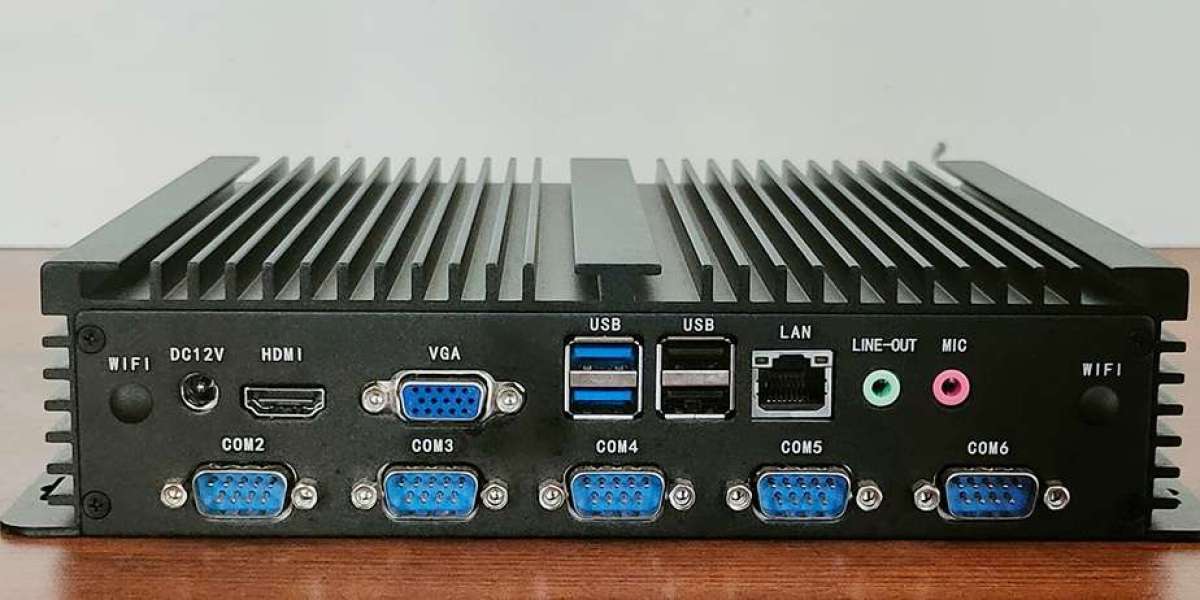Companies are always searching for methods to simplify their IT infrastructure as they grow and rely more and more on technology. Adoption of thin clients is one method that has become increasingly popular. A thin client is a small, low-cost computer that gets the majority of its processing power from a central server. Because of their many advantages, these devices are a desirable choice for companies of all kinds. Now let's explore the main benefits of employing thin clients in your company:
- Cost Savings
The affordability of thin clients is one of their biggest benefits. More expensive hardware and regular updates are needed for traditional PCs. Conversely, thin clients are less expensive to buy and keep. They have lower initial costs because they don't require expensive components like powerful CPUs or huge storage drives because they rely on a central server for processing.
Furthermore, because resources are centralized, maintenance may be completed by fewer IT staff members, and hardware upgrades can be performed at the server level, negating the need to replace individual devices.
- Improved Security
Any organization should prioritize data security, and thin clients provide a strong answer in this regard. The danger of data breaches or loss due to device theft or damage is greatly reduced as the majority of data is kept on centralized servers rather than on individual devices. Sensitive company information is safe on the server even in the event that a thin client is misplaced or stolen.
Furthermore, IT administrators can simply enforce company-wide updates, antivirus protections, and data encryption measures using thin client management, which makes it easier to assure compliance with security policies.
- Centralized Management
Centralizing IT management is one of the main benefits of adopting thin clients. Administrators can deliver updates, manage software, diagnose problems, and secure devices from a single location because the majority of the work takes place on the server. Because of the significant reduction in system downtime and requirement for on-site IT support, this is an especially advantageous solution for companies with remote offices or geographically distributed staff.
- Energy Efficiency
Because thin clients don't have high-power components like huge hard drives and GPUs, they utilize a lot less electricity than standard desktop PCs. Reduced power consumption contributes to ecologically responsible operations by saving your company money on electricity and reducing its carbon impact. Thin clients are an excellent option for more environmentally friendly IT infrastructure for businesses trying to achieve sustainability goals.
- Longer Lifespan and Reduced Maintenance
Because of their simpler design, thin clients last longer than traditional PCs. These devices are less likely to fail since they have fewer moving parts and require less hardware, and because they rely on server-side processing, they are also less vulnerable to software bloat over time. This lowers the overall cost of ownership by reducing the frequency of replacements and repairs.
Moreover, because thin clients are less complex, they require fewer resources for maintenance. IT teams can focus on managing the central server rather than troubleshooting individual devices.
- Enhanced Remote Work Capabilities
As remote and hybrid work models become the norm, thin clients offer an effective solution for employees working from different locations. Employees can access the same server-based environment from any location, ensuring they have secure, consistent access to the necessary tools and data they need for work.
This server-based approach also helps reduce latency and increases performance, especially when connected to a strong network, ensuring that remote teams can remain productive without interruptions.
- Scalability for Growing Businesses
As your business grows, so do your IT needs. Thin clients are highly scalable, allowing companies to easily add new devices without having to invest heavily in new hardware. Adding more users is as simple as connecting additional thin clients to the server. The centralized infrastructure also makes it easier to manage a growing number of users, ensuring consistent performance and easy onboarding for new employees.
- Reduced Risk of Software Conflicts
Since all applications are run and managed from a centralized server, thin clients reduce the likelihood of software conflicts and compatibility issues. IT teams can ensure that all employees are working with the same versions of applications, reducing troubleshooting time and eliminating compatibility headaches that often arise with traditional PCs.
- Minimal Downtime
When a traditional PC fails, it can take hours, if not days, to repair or replace the machine, leading to costly downtime for employees. With thin clients, system recovery is much quicker. Since all the critical data and applications reside on the server, employees can quickly switch to another thin client and continue working without major interruptions. This leads to higher productivity and less frustration for staff.
- Support for Virtual Desktop Infrastructure (VDI)
Thin clients are particularly effective when paired with Virtual Desktop Infrastructure (VDI), a technology that allows users to run virtual desktops on the server. VDI offers a seamless desktop experience for employees across different devices, giving them access to a standardized work environment regardless of their location or device. This flexibility is ideal for businesses with remote workers, contractors, or temporary staff who need quick access to company systems.
Conclusion
The shift toward thin clients represents a strategic way for businesses to reduce costs, enhance security, and streamline IT operations. With centralized management, scalability, and energy efficiency, thin clients provide a future-proof solution that aligns with the modern workplace's needs. As more companies embrace remote work and prioritize security, thin clients offer an ideal infrastructure for maximizing efficiency while minimizing risks and expenses.
Embracing thin clients can help businesses stay competitive, agile, and ready for the next wave of digital transformation.



